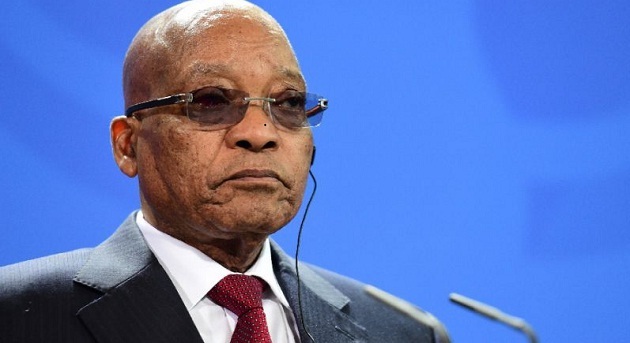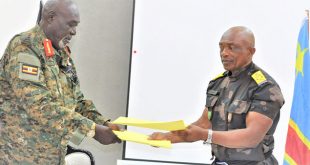
Cape Town, South Africa | AFP | South Africa’s ruling party leader Cyril Ramaphosa admitted Sunday to “disunity and discord” within the African National Congress as it struggled to remove scandal-tainted President Jacob Zuma from power.
Ramaphosa, 65, said he wanted to replace “a period of difficulty, disunity and discord” with “a new beginning” for the ANC party, and he vowed to tackle the corruption that has tarnished Zuma’s government.
“We know you want this matter to be finalised,” he said to rapturous cheers at a rally of party faithful in Cape Town.
With the 75-year-old Zuma refusing a February 4 request to resign by senior party officials, the ANC’s top decision-making committee will meet on Monday.
The committee could recall the president from office, though he would be under no constitutional obligation to obey the order.
“We know you want closure — we will be doing so keeping our eyes on what is in the interests of all our people,” Ramaphosa, who is the country’s deputy president, said to loud applause.
“As you have all heard, the National Executive Committee of the ANC will be meeting tomorrow… and because our people want this matter to be finalised, the NEC will be doing precisely that.”
Several thousand ANC supporters wearing the party’s signature yellow, green and black colours — many also sporting images of Ramaphosa on their shirts — attended the rally at Cape Town’s symbolic Grand Parade square.
Nomaza Nkukwana, a 54-year-old unemployed woman from nearby Driftsands, said: “We liked the speech and I liked the language he was using.”
“Ramaphosa must come — then we’ll be having a real president.”
It was in that same vast square in front of City Hall on February 11, 1990, that Nelson Mandela spoke to euphoric crowds hours after his release from prison.

That was Mandela’s first major speech as a free man and a key moment in South Africa’s modern rebirth as white-minority apartheid rule crumbled.
Holding the microphone for Mandela that day was a young Ramaphosa, then a trade union leader.
Zuma’s presidency has been marred by corruption scandals, slow economic growth and record unemployment that have fuelled public anger in sharp contrast to the mood of national optimism that swept South Africa after Mandela’s release.
 The Independent Uganda: You get the Truth we Pay the Price
The Independent Uganda: You get the Truth we Pay the Price



